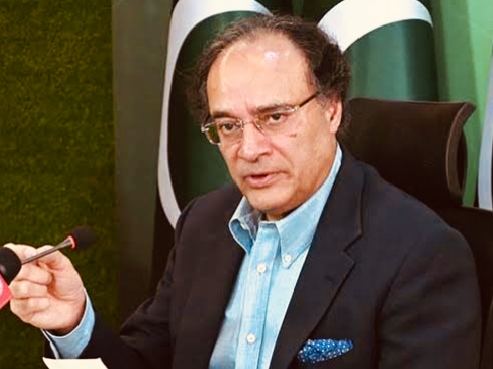Kamaliya: Mohammad Aurangzeb, the Federal Finance Minister, said that the government plans to lower the interest rate to zero as part of its larger economic changes. In an interaction with the media, he talked about how important it was for everyone to work together and called for a “Charter of Economy” to help the country move forward. He said, “The wheel of the economy has started moving, and it’s time to collaborate for sustainable growth.”
The minister agreed that the economy was having problems and said that answers would take time because there is no “magic wand” that can fix all problems at once. He did, however, reassure the people that the government’s main goal is to keep taxes as low as possible while working to stabilize the economy.
Mohammad Aurangzeb also talked about plans to lower the cost of energy and include the private sector in important areas like IT and farming. He said that state institutions that are losing money should be either sold to private companies or shut down to stop the economy from going down even more. “We are actively involving the private sector to strengthen the country’s economy and implementing revolutionary measures for agricultural development,” he said.
In response to worries about taxes, the minister agreed that the tax system had problems but promised to get rid of tax fraud and graft. “Everyone needs to pay their taxes and help the country.” “We know that people are unhappy with the tax agencies, and we are working on changes,” he said.
He also said that parties are still being consulted in order to make economic change policies that work. He has been to a number of places in recent weeks to talk to business leaders and get their ideas for the next budget and long-term economic plans.
In the end, Mohammad Aurangzeb stressed the importance of independence by saying, “Charity cannot run a country.” It can help hospitals and schools, but for national success, we need strong economic policies and everyone working together.









